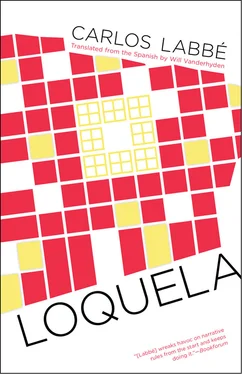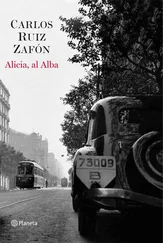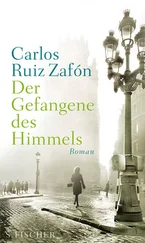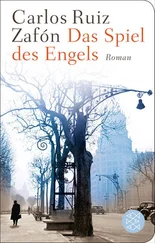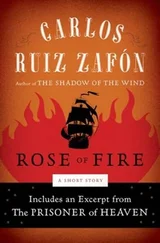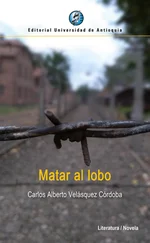Carlos’s mother came into the bedroom and opened the curtains to wake him up. She told him he shouldn’t sleep so late and that she was on her way to the store. Putting on makeup in the bathroom, she asked him if he’d be staying for breakfast. Either way, he should stick around until she got back, because his father was at the office and Josefita shouldn’t be left alone.
Carlos got in the shower. Massaging shampoo into his scalp, he remembered a forgotten chapter that was saved on his parent’s computer: the protagonist is supposed to meet the albino girl at the ticket counter of a movie theater, but she stands him up. He heard the engine of his mother’s car fade away in the distance, and the insistent ringing of the telephone. Dressed now, he peeked into the living room and greeted Jose, who was talking to a friend on the phone, but she didn’t respond, as if she hadn’t seen him. He sat down in front of the computer to review the chapter and print it out. He’d never asked himself why the albino girl didn’t show up for the date. The protagonist, on the other hand, had an immediate hypothesis: she’d been kidnapped; the stalker had found her at last. There was no doubt, her message had indicated that particular theater, not another: the stalker had doubtlessly run into her randomly on some downtown street, let’s say the corner of Ahumada and Moneda, where people always sit and stare at the passersby as if searching for someone, and all because he’d insisted that they meet. Near the mouth of the metro he rested, fatigued, on one of the benches; he didn’t see anyone suspicious. He realized, looking at a clock on top of a post, that it was earlier than he’d thought. So, he said to himself, one of these people could be the one who abducted the albino girl; that old man flipping through the headlines of the afternoon paper, the kid eating French fries, the guy with the shopping bags and the sweaty face. But none of them fit the profile he imagined for the maniac, they weren’t suspicious faces; in fact, they were intimidated by his scrutinizing eyes, right then the clock on the corner read two minutes past seven. He went back to the theater — worried that the albino girl might already have come and decided to leave, disappointed that he wasn’t there — in vain: they weren’t going to meet that night, and he decided to go in and watch the movie. Fucking public clocks, you never know if they’re broken or on time.
His mother’s voice interrupted him. She was coming up the stairs, asking with feigned calm where Josefita was. In the living room watching TV, he suggested. His mother searched the house, top to bottom, calling to Josefita over and over, but the girl had disappeared. She was too old to be hiding, but not old enough to go out on a walk or to run off with a friend. None of the neighbors had seen her leave. When his mother came up to the second floor for the third time, swearing, asking him where Jose was, Carlos felt the weight of a hand on his shoulder again, like someone was watching him from the doorway. His little sister had been taken while he, lost in thought, read a chapter on the computer screen. He ran through the neighborhood’s surrounding blocks, but like always, the streets were nearly deserted. A nanny was monitoring some children in the plaza, a nurse was pushing an old man in a wheelchair, and a few dogs were sniffing around on a corner. In which of these tranquil apartments could Josefita be? How was it possible that she’d not overheard a single worried conversation, a single knock, a single shout? When he got home, his mother was waiting for him, smiling: his father had called while he was out to see if he should pick something up for lunch, and she’d told him desperately that Josefa was missing. His father had laughed, because more than an hour before, he’d come by to take her clothes shopping. He’d even parked, come inside, used the bathroom, yelled to Carlos that he was going out with Josefina and, without waiting for a response, they’d left.
Kneeling on her bed, Elisa studied the name of the letter’s sender. It’d be so easy to open the envelope and read the words Violeta had written for Carlos. But she’d never do it: opening that letter that didn’t belong to her might unleash the strange person who over the years she’d managed to hide away in the cardboard box that now sat open on the floor, its interior revealing folded, yellow papers, old notebook pages on which Carlos had written poems and letters that he’d given her in the most sentimental days of high school. Elisa threw Violeta’s envelope into the box. Then she replaced the lid and concealed the box in the very back of her closet, near the ceiling, next to a moth-eaten superhero costume and a pink sleeping bag that only came up to her hip now. She closed her eyes and lay down. It was more like she was recalling a significant dream than really falling asleep: fade to black; Carlos’s eyes finding hers the first time they saw each other, in an elevator in the apartment building of a mutual friend. The heat of his shoulder when she’d cried at a party. And him not daring to touch her. His voice had been different, so serious, when they walked home together, always following the same route. She’d loved him in high school. Loved him like that, young, pretending to be tormented and solitary but surrounded by a large group of friends. She adored the game of randomly running into him on any one of the ten corners that separated their houses just to make him think about the two of them. They never touched each other, that was the promise; he gave her obscure poems and she gave him looks, nothing more, but all that ambiguity got old, they couldn’t go through life guessing, so the mystery got boring, she confused him at parties with other guys, she didn’t want to be alone. They trivialized one another, Carlos would’ve said at the time; they became best friends, confidants. Elisa knew that he liked to lie, that he was lazy. He teased her for taking half-hour showers, for competing with every girl she encountered, and for acting like she didn’t know she was beautiful. On the phone, once a week and once a month face-to-face, that was their agreement. They discussed the minutia of their lives over beer, then they’d walk to her house in silence, nostalgic for something that had not yet happened.
One day Carlos called her and asked if she’d have any trouble getting a formal dress. She said no, she’d even put on some makeup. He’d decided to go to his cousin’s wedding and he wanted her to be his date. They danced with each other, they had a good time. They talked about marriage after a few too many drinks. She swore that she’d never get married, he said he’d heard it a hundred times before, that love isn’t eternal. They stared at each other. Remembering that night, Elisa always used whiskey to justify what they did. But this time she limited herself to remembering that they’d climbed the stairs holding hands, gone into a dark bathroom, and that one of them had locked the door. He asked her to kiss him, she made him promise something, that they’d stop talking, that they’d stop being themselves, and the mouth that agreed was a strange mouth, whose penetrating smell and unknown moistures lasted until the next day, and when the sun came up they were no longer best friends. They kissed again to open their eyes and studied the details of each other’s features. He said something clever, they laughed and started talking again. But Elisa had never forgotten the stranger from that wedding night. She covered her face again, a large mouth sucked at her until she started losing air not realizing that it was her own breathing. Violeta’s letter, in lines not written for Elisa, might be intended for that intruder — the one who’d bent her over the old bathtub in that unfamiliar bathroom and stripped off her clothes — for that man who appeared when she was sleeping and heard noises, bells, moans that she was sure were coming from the closet, from the box she’d hidden behind all of her clothes.
Читать дальше
